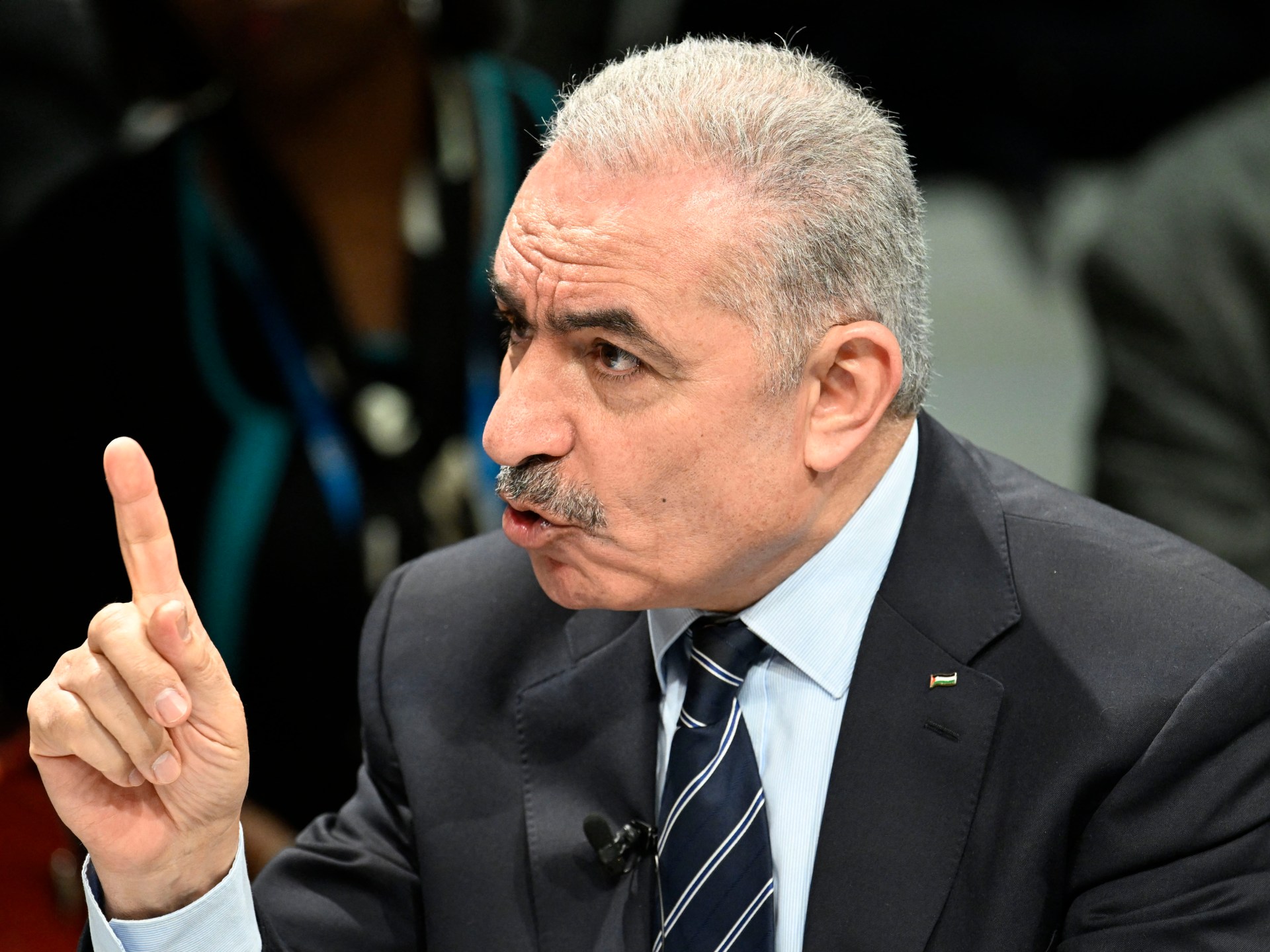Palestinian Prime Minister Muhammad Shtayyeh confirmed that today he officially submitted the resignation of his government to President Mahmoud Abbas (French)
Palestinian Prime Minister Muhammad Shtayyeh announced - today, Monday - that he has submitted the resignation of his government to President Mahmoud Abbas, in view of the political, security and economic developments related to the situation in the Gaza Strip and the unprecedented escalation in the West Bank.
Shtayyeh delivered his speech during the weekly government session in the city of Ramallah in the occupied West Bank, where he stressed that his government was able to achieve a balance between the needs of the Palestinian people and confronting the political challenges and changes in the region.
Shtayyeh indicated that he submitted his government's resignation to Abbas last Tuesday, and today he confirmed its official submission in writing.
He explained that the next stage requires the formation of a new government that takes into account the current challenges caused by the Israeli aggression on the Gaza Strip, with a focus on the issue of national unity and strengthening national authority over the entire territory of Palestine.
In the context of announcing the resignation decision, Shtayyeh indicated that this decision is also in light of the fierce and unprecedented attacks on the Palestinian people and their cause, and attempts at genocide, forced displacement, and starvation in the Gaza Strip.
Shtayyeh stressed that the decision to resign resulted from the escalation of colonial practices and terrorism by Israeli settlers, the repeated invasions in Jerusalem and the West Bank, including camps, villages and cities, and the intensification of Israel’s unprecedented financial restrictions on the Palestinian Authority.
He attributed the decision to attempts to liquidate the United Nations Relief and Works Agency for Palestine Refugees (UNRWA), repudiate all signed agreements, gradually annex the Palestinian territories, and seek to reduce the role of the Palestinian Authority to a security administrative authority with no political content.
Shtayyeh concluded by emphasizing that the government performed excellently in difficult circumstances, and confronted the battles imposed on it in light of the Israeli aggression on the Gaza Strip.
Shtayyeh stressed, saying: “We will remain in confrontation with the occupation, and the National Authority will continue to struggle to embody the state on the lands of Palestine, against their (the Israelis’) will.”
Recently, the West Bank has witnessed an escalating wave of tension and field confrontations between Palestinians and the Israeli army, including raids and arrests of Palestinians, in light of the devastating war launched by Israel on the Gaza Strip.
Abbas, who heads the Fatah movement, was subjected to sharp criticism for his "inability" to deal with the ongoing war in the Gaza Strip and the ongoing escalation in the occupied West Bank.
As of Monday, the devastating Israeli war on the Gaza Strip has resulted in the death of 29,782 Palestinians and the injury of 70,43 others, most of them children and women.
This war also caused massive destruction of infrastructure, leaving an “unprecedented humanitarian catastrophe,” according to Palestinian and international reports.
Source: Agencies

